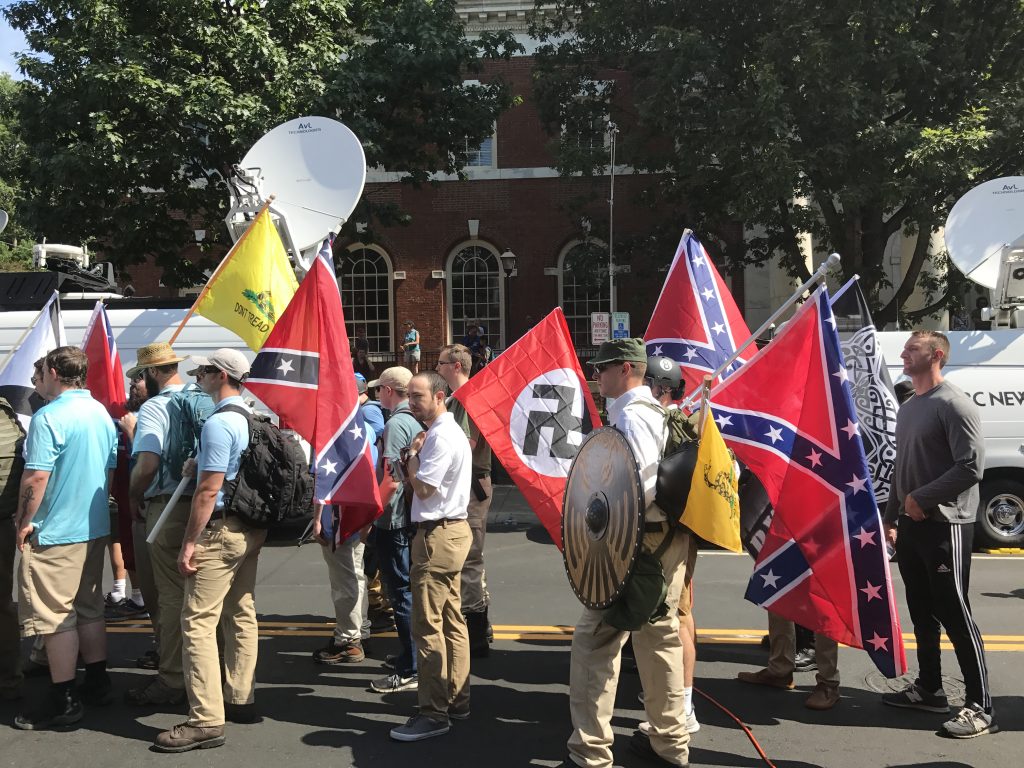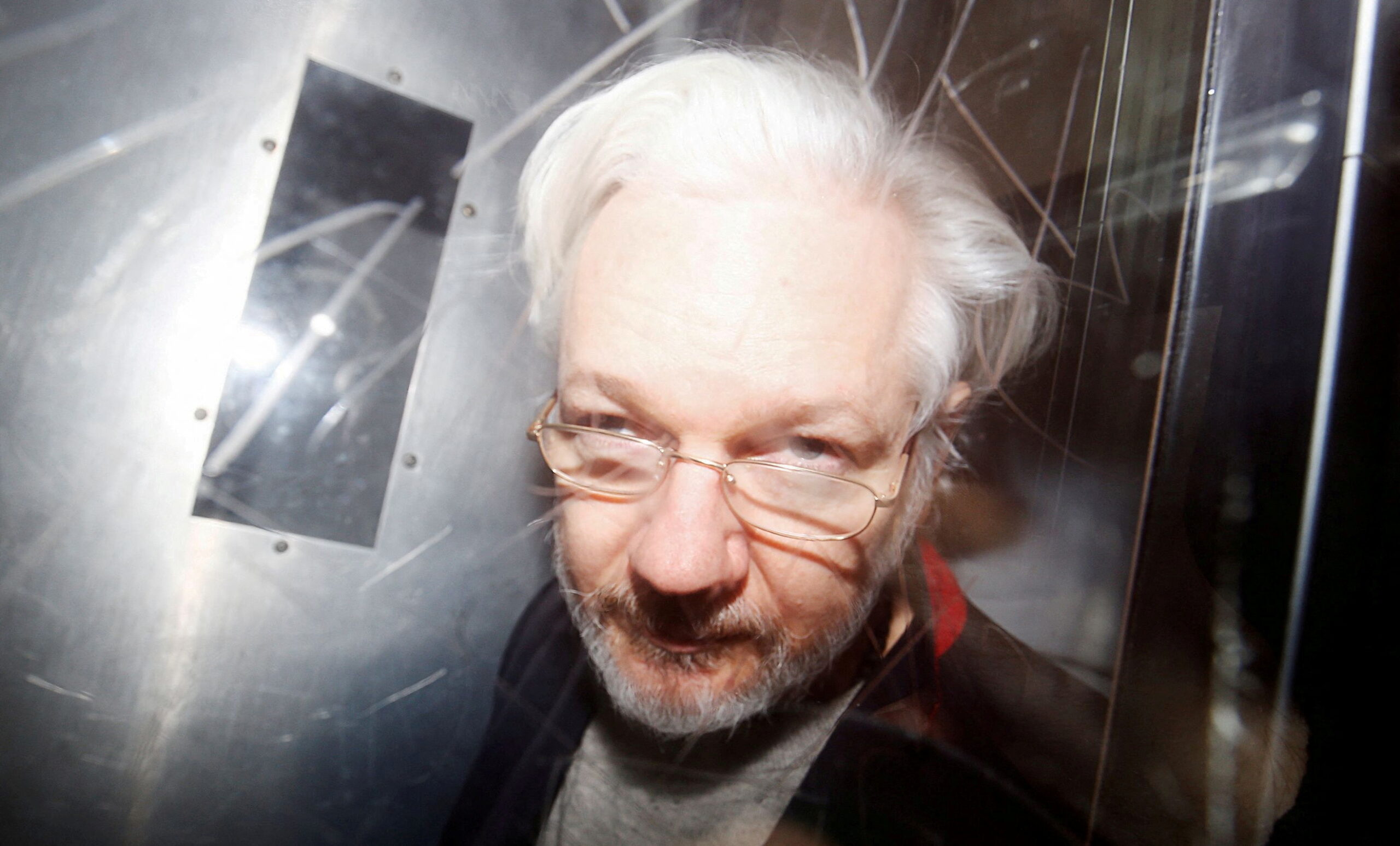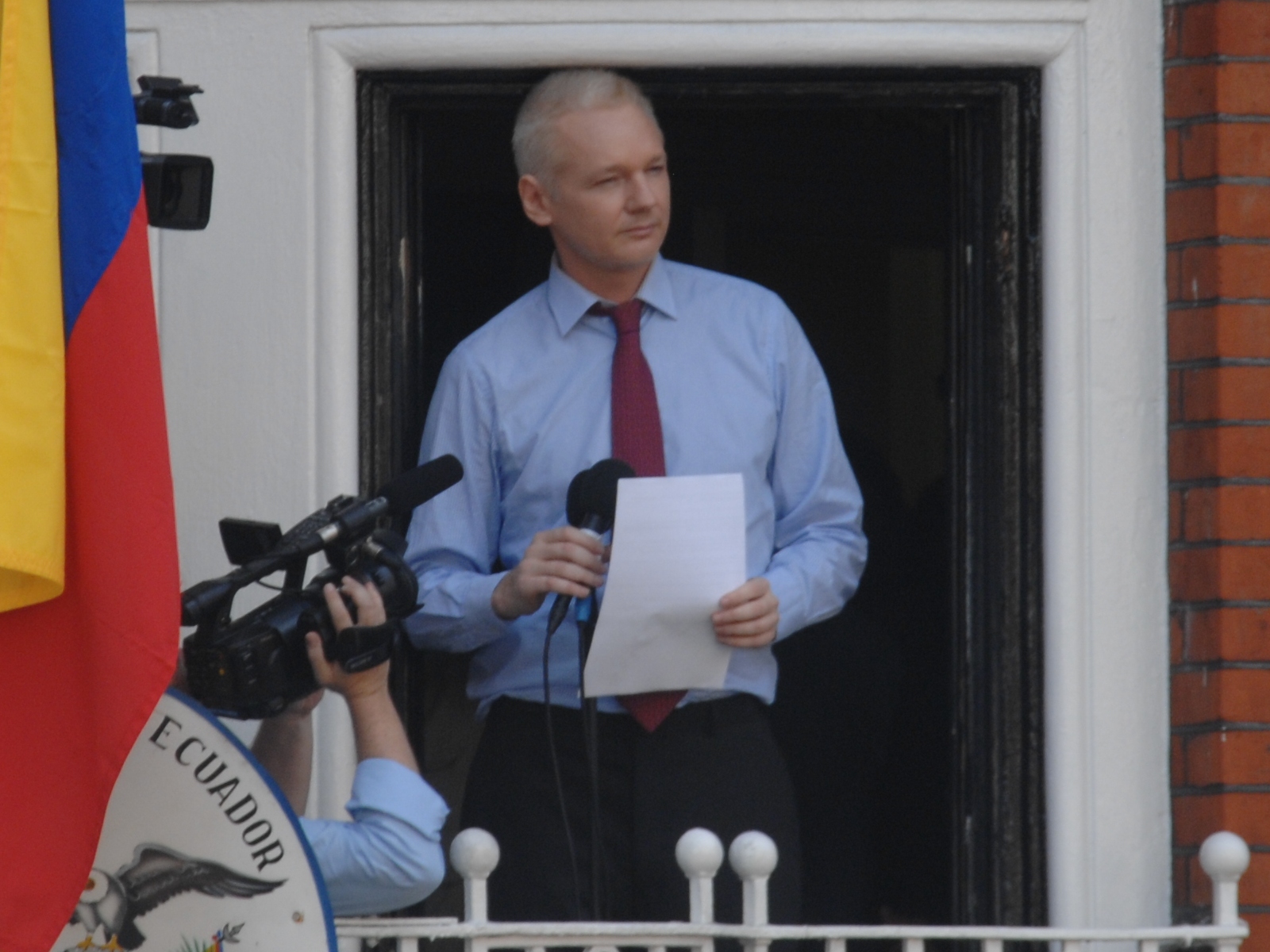A federal judge dismissed a lawsuit brought against the city of Charlottesville, Virginia by an organizer of the 2017 “Unite the Right” rally, finding no evidence that the plaintiff’s constitutional rights had been violated. Specifically, the judge rejected the marchers’ claim that the police had a duty to protect them from counter protesters.
“Defendant’s concern was the actual and open violence created by conflict between protestors and counter-protestors, which risked compromising officer safety had they intervened before the declaration of an unlawful assembly,” the ruling said.
For two days in August 2017, hundreds of self-identified white nationalists, neo-Nazis and Ku Klux Klan members congregated in Charlottesville to protest the proposed removal of a confederate statue. The demonstration attracted a large number of counter protesters, and resulted in violent clashes between the two groups.
The situation escalated around noon on August 12th, the second day of the event, when both marchers and counter protesters charged at each other with shields and flagpoles. The disorder led law enforcement to call an “unlawful assembly,” and order both groups to clear the park, right before the Unite the Right’s lead organizer, Jason Kessler, had planned to deliver a speech.
In 2019, Jason Kessler and rally attendee David Matthew Parrot sued the city for violating their First Amendment rights. They claimed that public officials had effectuated a heckler’s veto by using the “expected chaos and violence caused by the confrontations between ‘Antifa’ counter-protestors and Alt-Right protestors as grounds to shut down Plaintiffs rally.”
Kessler and Parrot argued that public officials had prior knowledge that could have predicted potential violent clashes between the two groups, and that they should have done more to protect the marchers from counter protesters’ aggressive behavior.
Writing for the United States District Court for the Western District of Virginia, Judge Norman K. Moon dismissed both of these claims.
“While Defendants did, of course, have a constitutional obligation to refrain from restricting Plaintiff’s speech on account of the threat, or possibility, of public hostility to their Alt-Right message, the law is clear that Defendants had no constitutional obligation to prevent that public hostility,” Moon wrote, adding that the plaintiffs’ own allegations demonstrates that law enforcement’s decision to refrain from breaking up fights and later call for an unlawful assembly was not for viewpoint-based reasons but, “a means of ensuring officer and public safety in a context where the violence between the two factions had escalated to such a degree that ‘people were hurt and beaten on both sides.’”
Moon also dismissed Kessler and Parrot’s claim that the unlawful assembly should have been restricted to violent protesters, writing that law enforcement “could not possibly have had an affirmative obligation under the Constitution to reliably identify non-violent individuals from the various ideological camps present to remain at the site.”
Finding that none of the plaintiffs’ allegations demonstrated a clear violation of First Amendment rights, the federal judge granted the city’s motion to dismiss the lawsuit.
Ruling Complaint Court House News
Tags




